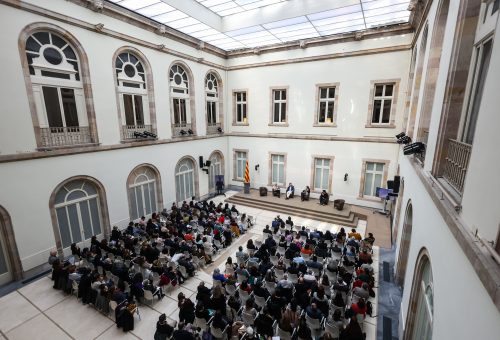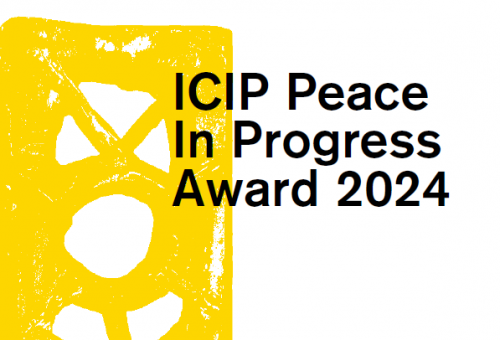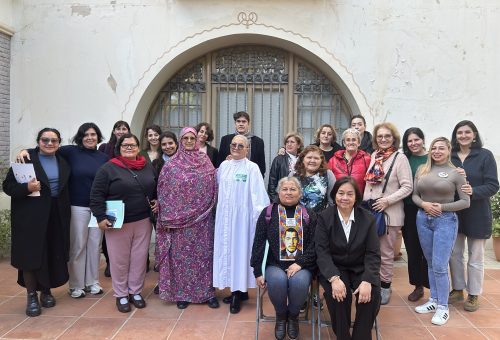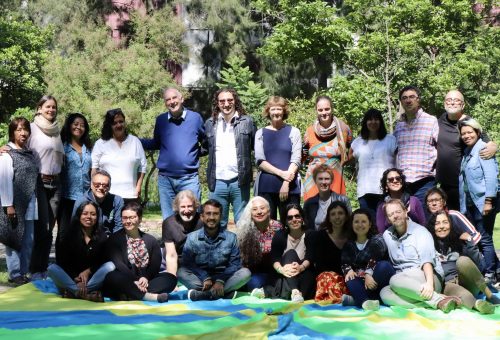On Thursday 13 September, ICIP held the seminar “How to tackle violence outside of armed conflict settings” at the Palau Centelles in Barcelona. The seminar brought together experts in the violence affecting various countries in Latin America, a region where 40% of the homicides registered worldwide occur. This violence is linked to common problems such as organized crime, drug trafficking, gangs, corruption, inequality and poverty.
After ICIP president Xavier Masllorens’ welcoming remarks, the initial reflection was given by Ivan Briscoe, director of the Latin American and Caribbean program of the International Crisis Group. In his comments he established connections between the political violence and the criminal violence affecting the region, which “are not isolated phenomena,” and he reflected on the new types of extremely cruel and selective violence aimed at political and social leaders, which states need to know how to tackle.
The following speeches were given by Jessica Cohen, an international security analyst, Katherine Aguirre (Igarapé Institute of Brazil), Raquel Willadino (Observatório de Favelas of Brazil), Carles Feixa (Pompeu Fabra University), David Bondia (Human Rights Institute of Catalonia), Marc Bosch (Doctors Without Borders), and Gisela Cardús (Catalan Refugee Aid Commission).
The different speakers highlighted the need to address the structural causes of violence (such as inequalities, social exclusion and a lack of opportunities); the need to establish more coordination at the local, national and regional levels; to study the violence from a multidisciplinary approach; and to search for individual responses for each type of violence based on strategies of prevention and conflict transformation which go beyond current militarization policies. As a matter of fact, regarding positive strategies, a special mention was made of the cases of cities such as Ciudad Juárez (Mexico), San Pedro Sula (Honduras) and Medellín (Colombia), which for years registered the highest rates of violence and which have undergone a progressive reduction in the number of violent deaths. A reflection was also made regarding the need to respond to violence within a framework of respect for and compliance with human rights. The conference also addressed direct consequences of violence, such as population displacement and demands for asylum or humanitarian action.
Oscar Mateos, the director of the ICIP program “Violence outside of armed conflict settings,” mentioned as final conclusions the need to study strategies for the prevention of violence and for social transformation in order to be able to offer life projects in very precarious contexts, and to build emancipating and liberating peace models, which prevent violence from becoming a routine phenomenon, as an alternative to securitized peace models. He warned of the inability of states to respond to this violence and of the need to place value on sub-state actors and the creative and hopeful power of civil society.
During the seminar, a minute of silence was observed in memory of Vicent Martínez Guzmán, former vice president of ICIP, and Anna Bastida, a former member of the ICIP Governing Board. With their academic and personal expertise, these two people worked notably in the field of peacebuilding and the promotion of peace.
14.01.2018




